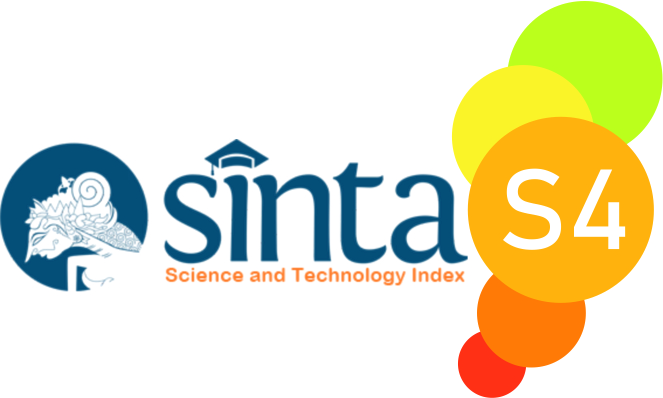Using Whispering Game to Improving Students’ Pronounciation
Abstract
Most of the students said that learning English Pronunciation is difficult. A sentence will have different meaning if they wrong in pronounce it. Therefore, teaching pronunciation is one of the important parts in learning English. The design used in this study is Classroom Action Research (CAR). Technique of collecting data in this study is both quantitative data and qualitative data. The researcher uses qualitative data consist of questionnaire sheet, and interview. While quantitative data is taken from student’s score from the test, it consists of 35 students’ final pronunciation. This research was conducted at SMPN 5 Lembor. The purpose of this study is to improve students’ pronounciation skills by using whispering game. Based on finding research, whispering game can improve the student’s pronunciation ability. The result of student’s score is better than before applying the game, it means that pronunciation of students had been improved after using whispering game in English teaching learning process.
References
Akhmad, N. W., & Munawir, A. (2022). Improving the Students’ Pronunciation Ability by Using Elsa Speak App. IDEAS: Journal on English Language Teaching and Learning, Linguistics and Literature, 10(1), 846–857. https://doi.org/10.24256/ideas.v10i1.2868
Ariyani, D., Marbun, R., & Riyanti, D. (2013). Improving Students’ Pronunciation by Using Reading Aloud in Junior High School. Jurnal Pendidikan Dan Pembelajaran Khatulistiwa, 1–9. https://jurnal.untan.ac.id/index.php/jpdpb/article/view/3413
Hidayatullah, S. M. (2018). Improving Students’ Pronunciation Through Western Movie Media (A Classroom Action Research at 4 th semester in English Education of IAIN Sultan Amai Gorontalo). Journal Al-Lisan, 3(1), 93–111. http://journal.iaingorontalo.ac.id/index.php/al
Juniarti, N. T., Amzah, & Magdahalena. (2020). Using Toongue Twister Technique to Improve Students’ Pronunciation Ability. Inspiring: English Education Journal, 3(1), 49–57. https://doi.org/10.35905/inspiring.v3i1.1324
Marzuki, Marzuki. (2021). ERROR ANALYSIS IN PRONUNCIATION MADE BY THE ENGLISH DEPARTMENT STUDENTS AT IKIP BUDI UTOMO MALANG. Journey: Journal of English Language and Pedagogy, 4(1), 29-34. https://doi.org/10.33503/journey.v4i1.1256
Sharifian, F. (2009). English as an International Language: An Overview. English as an International Language: Perspectives and Pedagogical Issues, 1–18. https://doi.org/10.21832/9781847691231-004
The Effectiveness Of Single-Slot Susbtitution Drill Technique To Improve Students’ Pronounciation Nenden Sri Rahayu, Hasna Amalina Nafisah. (n.d.). 2018.
Copyright (c) 2024 Karolina Mutia, Tities Hijratur Rahmah, Suhartatik Suhartatik

This work is licensed under a Creative Commons Attribution-ShareAlike 4.0 International License.

Journey: Journal of English Language and Pedagogy by http://ejurnal.budiutomomalang.ac.id/index.php/journey/index is licensed under a Creative Commons Attribution-ShareAlike 4.0 International License.






